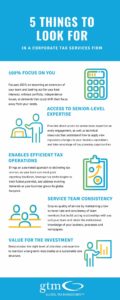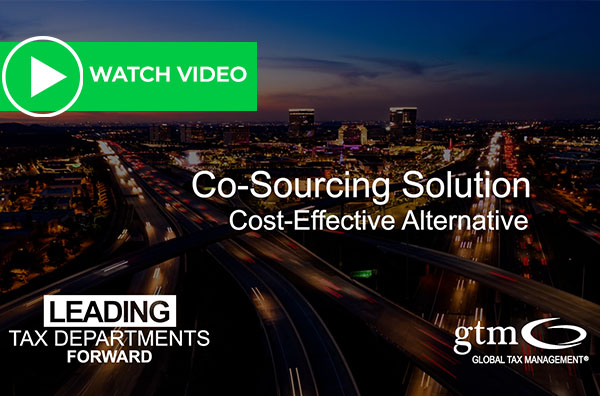The sales and use tax compliance process is a data-intensive exercise. During the monthly close cycle, a tax department must quickly compile, summarize, compare, reconcile, and transform sales and procurement data from multiple sources. After the data has been finalized, returns must be prepared; checks must be cut; and ACH payments must be uploaded and executed. This entire process must be completed in a matter of days. Once complete, general ledger accounts must be reconciled, and any adjustments must be rolled forward to the next month. This is a time- and labor-intensive exercise that’s prone to errors and inaccuracies, especially if there are manual steps in the process.
The good news is this: you can make your sales and use tax compliance process more manageable, either by streamlining your in-house process or by outsourcing it. But first, you need to ask – and answer – the right questions about your data, your processes, and your resources to learn how you can save time, money, and resources, while reducing risk.
Q&A for Internal Sales & Use Tax Process Improvement
Before seeking a path forward for improvement of your internal compliance processes, you first need to analyze the current state of three key areas. Ask yourself these questions:
1. How are you compiling, summarizing, and manipulating sales and use tax source data?
With every compliance exercise, we need to reconcile, summarize, and manipulate our source data. Sophisticated, yet user-friendly, tools exist to perform these exercises. With these tools, the necessity to execute manual steps in excel, csv, text, and other formats has diminished. Now, the bulk of the compilation, summarization, and manipulation processes to reconcile and prepare data for compliance can be automated with little upfront effort. Learn more about tax automation tools.
2. How are you preparing and filing state sales tax returns: manually or through automated processes?
Significant time and effort are required to manually prepare return copies and subsequently key in that data to a state’s online filing portal. Once your source data is reconciled and prepared, there are a multitude of solutions that can be implemented to help automate the return preparation. In addition, these solutions can be configured to produce uploadable files for state websites, alleviating the need for manual transposing of data.
3. During your monthly process, are you reconciling along the way to ensure that your data agrees with your general ledger?
It’s common for companies with complex ERPs, multiple source systems, and complicated general ledgers to simply utilize transactional level data in their process each month. However, that transactional level data needs to be reconciled back to the general ledger in order to account for any adjustments. Most companies do this process after compliance is complete, double-checking that the filed data agrees with what was accrued in the general ledger. With the right tools and automation in place, the reconciliation process becomes self-sufficient and can be completed with the filings in real time.
Weigh and Measure Your Option to Outsource Sales & Use Tax Compliance
The sales and use tax compliance effort consumes a significant amount of time. There is software to be maintained, data to be manipulated, payments to be made, and returns to be filed. In the meantime, your department may already be understaffed, or worse yet, your tax staff may not have sufficient experience in sales and use compliance. These factors could cause a greater margin for error and even missed filings/payments. If this resembles your tax department, outsourcing could a strategic option for you.
Based on your responses to the three questions above, the benefits of outsourcing your sales and use tax compliance processes can be substantial. They include:
- If you have existing sales tax software in place, you can say goodbye to annual renewals, hardware upgrades, and support. For example, GTM licenses its software directly so there is no software implementation, maintenance, or annual fees for support.
- Your source data can be accepted as-is. No manipulation or conversion is required, saving you significant time and effort. Outsourcing providers like GTM have dedicated tax technology professionals that support data warehousing and transformation of source data files on a monthly basis.
- An outsourced process incorporates both the general ledger data and transactional level detail. The combination of the two allow for complete and accurate return preparation and filing. Once returns are filed and paid, the reconciliation process is done; and any adjustments to returns have been identified in the data and appropriately accounted for.
Minimize Risk and Cost, No Matter Your Approach
Whether you decide to streamline your current in-house sales tax process or outsource, there are ways to minimize risk and cost in your compliance process. Immediately, you can realize the benefits of:
- Streamlined and validated data
- Reduced tax liability and audit risk
- Return deadlines monitored and met
- Tightened internal controls
- Increased tax return accuracy
- Reduction in overall internal costs
To learn more about GTM’s Sales and Use Tax Compliance services or to speak with someone who can guide you through the process, contact us.



